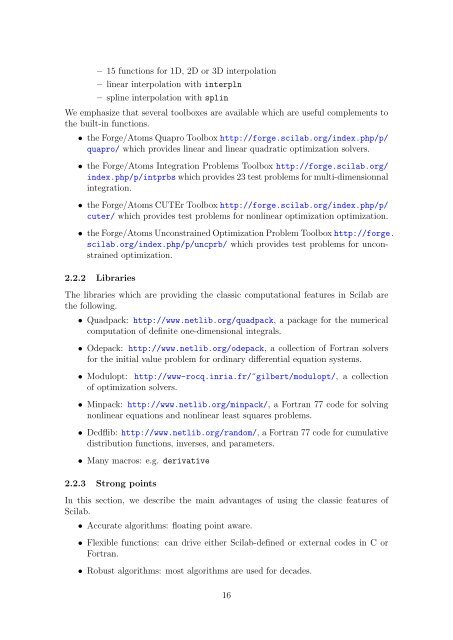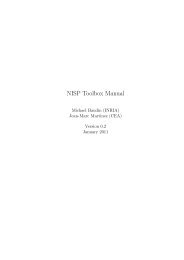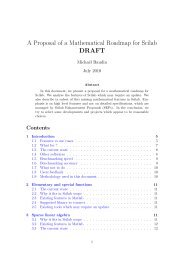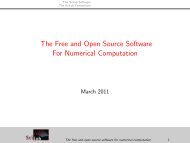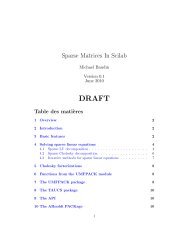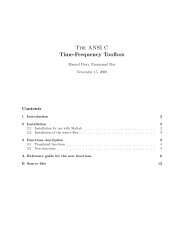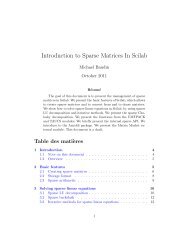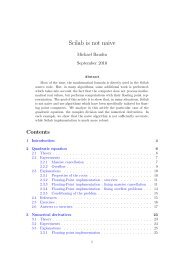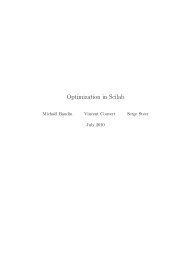A Proposal of a Mathematical Roadmap for Scilab DRAFT - Projects
A Proposal of a Mathematical Roadmap for Scilab DRAFT - Projects
A Proposal of a Mathematical Roadmap for Scilab DRAFT - Projects
Create successful ePaper yourself
Turn your PDF publications into a flip-book with our unique Google optimized e-Paper software.
– 15 functions <strong>for</strong> 1D, 2D or 3D interpolation– linear interpolation with interpln– spline interpolation with splinWe emphasize that several toolboxes are available which are useful complements tothe built-in functions.• the Forge/Atoms Quapro Toolbox http://<strong>for</strong>ge.scilab.org/index.php/p/quapro/ which provides linear and linear quadratic optimization solvers.• the Forge/Atoms Integration Problems Toolbox http://<strong>for</strong>ge.scilab.org/index.php/p/intprbs which provides 23 test problems <strong>for</strong> multi-dimensionnalintegration.• the Forge/Atoms CUTEr Toolbox http://<strong>for</strong>ge.scilab.org/index.php/p/cuter/ which provides test problems <strong>for</strong> nonlinear optimization optimization.• the Forge/Atoms Unconstrained Optimization Problem Toolbox http://<strong>for</strong>ge.scilab.org/index.php/p/uncprb/ which provides test problems <strong>for</strong> unconstrainedoptimization.2.2.2 LibrariesThe libraries which are providing the classic computational features in <strong>Scilab</strong> arethe following.• Quadpack: http://www.netlib.org/quadpack, a package <strong>for</strong> the numericalcomputation <strong>of</strong> definite one-dimensional integrals.• Odepack: http://www.netlib.org/odepack, a collection <strong>of</strong> Fortran solvers<strong>for</strong> the initial value problem <strong>for</strong> ordinary differential equation systems.• Modulopt: http://www-rocq.inria.fr/~gilbert/modulopt/, a collection<strong>of</strong> optimization solvers.• Minpack: http://www.netlib.org/minpack/, a Fortran 77 code <strong>for</strong> solvingnonlinear equations and nonlinear least squares problems.• Dcdflib: http://www.netlib.org/random/, a Fortran 77 code <strong>for</strong> cumulativedistribution functions, inverses, and parameters.• Many macros: e.g. derivative2.2.3 Strong pointsIn this section, we describe the main advantages <strong>of</strong> using the classic features <strong>of</strong><strong>Scilab</strong>.• Accurate algorithms: floating point aware.• Flexible functions: can drive either <strong>Scilab</strong>-defined or external codes in C orFortran.• Robust algorithms: most algorithms are used <strong>for</strong> decades.16


